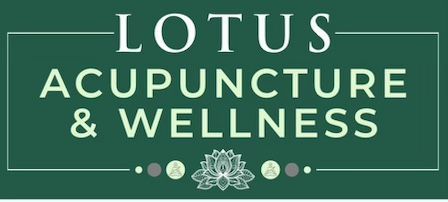The
United States is in the midst of an opioid epidemic. By the end of
2018, more than
130 people were dying every day from
opioid overdoses, according to the Centers for Disease Control and Prevention (CDC). This crisis stems from
widespread addiction to both prescription and illegal opioid substances.
How Did the Opioid Epidemic Begin?
How Acupuncture Helps with Opioid Addiction
Acupuncture has been proven to help ease withdrawal symptoms, reduce cravings, and address the underlying causes of chronic pain, which often lead to opioid use in the first place.
Advantages of Acupuncture for Opioid Recovery:
✔ Drug-free, all-natural approach
✔ Can replace or reduce the need for pain medications
✔ Fewer side effects than opioid-based treatments
✔ Helps manage withdrawal symptoms and cravings
✔ Supports relaxation, emotional balance, and overall well-being
By incorporating acupuncture into a rehabilitation plan, patients can gradually taper off opioids while improving their overall health and mental clarity.
Acupuncture vs. Traditional PTSD Treatments
While conventional treatments for PTSD often include counseling, cognitive therapy, and medications, they may not work for everyone. Acupuncture provides an alternative that:
✔
Promotes relaxation and emotional stability
✔
Reduces stress hormones and anxiety levels
✔
Supports better sleep and energy levels
✔
Encourages overall mental and physical well-being
A
University of New Mexico study found that
acupuncture was one of the most effective therapies for PTSD, offering significant symptom relief with
fewer side effects than traditional treatments.

Acupuncture vs. Opioids: The Research
A 2016 study published in the American Journal of Emergency Medicine compared the effectiveness of acupuncture vs. morphine in treating acute pain.
In a one-year study conducted at a hospital in Tunisia:
- 150 patients received traditional morphine treatments
- 150 patients received acupuncture treatments
Key Findings:
✅ Patients receiving
acupuncture reported greater pain relief than those receiving morphine
✅ Acupuncture patients
experienced fewer side effects compared to morphine users
✅ The study concluded that acupuncture is
at least as effective—if not safer—than intravenous morphine
The NADA Protocol: Acupuncture for Detoxification
One of the most effective acupuncture treatments for opioid addiction is the Acu-Detox protocol, developed by the National Acupuncture Detoxification Association (NADA).
This protocol targets
specific acupuncture points, helping to:
✔
Reduce cravings and withdrawal symptoms
✔
Regulate neurotransmitters in the brain
✔
Support emotional balance and relaxation
✔
"Reset" the body and mind for recovery
Acupuncturists work directly with primary care physicians to develop a safe, personalized treatment plan for opioid recovery.
Acupuncture Gains Recognition as a Pain Management Alternative
In response to the opioid crisis, major health organizations are recognizing acupuncture as a legitimate pain management tool.
📌
In 2019, Blue Cross Blue Shield began covering acupuncture treatments as an alternative to opioids.
📌
Hospitals and addiction centers are increasingly integrating acupuncture into recovery programs.
With growing scientific support and medical endorsement, acupuncture is emerging as a powerful, non-addictive alternative for pain relief and opioid addiction recovery.
A Safer, More Effective Approach to Overcoming Opioid Addiction

The opioid crisis has impacted millions, but alternative treatments like acupuncture offer hope. Whether used alone or alongside traditional rehabilitation programs, acupuncture provides a safe, drug-free method to:
✔
Manage pain without opioids
✔
Reduce withdrawal symptoms and cravings
✔
Support long-term recovery and emotional well-being
If you or someone you know is struggling with opioid dependence, consider acupuncture as part of a comprehensive treatment plan. Consult with a licensed acupuncturist today to take the first step toward healing and recovery.


